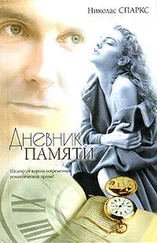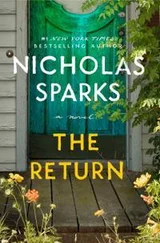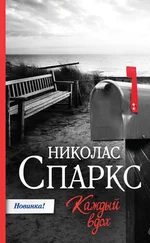17
Ira
Evening again, and still I am here. Cocooned in silence, interred by the white hard cold of winter, and unable to move.
I’ve lasted more than a day now. At my age and considering my plight, this should be cause for celebration. But I’m weakening now. Only my pain and thirst seem real. My body is failing, and it is everything I can do to keep my eyes open. They will close again in time, and part of me wonders whether they will ever open again. I stare at Ruth, wondering why she says nothing. She does not look at me. Instead, I see her in profile. With every blink, she seems to be changing. She is young and old and young again, and I wonder what she is thinking with each transformation.
As much as I love her, I admit that she has always remained somewhat of an enigma to me. In the mornings, as we sat at the breakfast table, I would catch her staring out the window. In those moments, she looked the same as she does right now, and my eyes would often follow hers. We would sit in silence, watching the birds as they flitted from one branch to the next, or gaze at the clouds as they slowly gathered shape. Sometimes I would study her, trying to intuit her thoughts, but she would offer only a slight smile, perfectly content to keep me in the dark.
I liked this about her. I liked the mystery she added to my life. I liked the occasional silence between us, for ours was a comfortable silence. It was a passionate silence, one that had its roots in comfort and desire. I have often wondered whether this made us unique or whether it was something that couples often experience. It would sadden me to think that we were an exception, but I’ve lived long enough to conclude that what Ruth and I had was an uncommon blessing.
And still, Ruth says nothing. Perhaps she, too, is reliving the days that we once shared.
After Ruth and I returned from our honeymoon, we began the process of creating a life together. By then, her parents had already moved to Durham, and Ruth and I stayed with my parents while we looked for a home to buy. Though a number of new neighborhoods were springing up in Greensboro, Ruth and I wanted a home with character. We spent most of our time walking through homes in the historic district, and it was there that we found a Queen Anne that had been built in 1886, with a front-facing gable, a round tower, and porches gracing the front and back. My first thought was that it was far too large for us, with more space than we would ever need. It was also desperately in need of renovation. But Ruth loved the moldings and the craftsmanship and I loved her, so when she said she’d leave the decision up to me, I made an offer the following afternoon.
While the paperwork with the bank loan was being finalized – we would move in a month later – I went back to work at the shop while Ruth threw herself into her teaching job. I admit that I was nervous for her. The rural school where she’d been hired largely served students who’d grown up on farms. More than half of them lived in homes without indoor plumbing, and many wore the same clothes day after day. Two arrived in class on the first day without shoes. Only a handful seemed to care about learning, and more than a few were fundamentally illiterate. It was the kind of poverty she’d never before experienced, less about money than a poverty of dreams. In those first few months of teaching, I’d never seen Ruth more frazzled, nor would I ever see her that way again. It takes a teacher both time and experience to formalize lesson plans and to become comfortable in even the best schools, and I often saw Ruth working late into the evenings at our small kitchen table, thinking of new ways to engage her students.
But as harried as she was during that first semester, it became plain that teaching such students, even more than the artwork we eventually collected, was not only her calling, but her true passion. She took to the job with a single-minded intensity that surprised me. She wanted her students to learn, but more than that, she wanted them to treasure education in the same way she did. The challenge she faced with such disadvantaged students only fired her enthusiasm. Over dinner, she would talk to me about her students and would recount to me the “little victories” that could make her smile for days. And that is how she would describe them. Ira , she would tell me, one of my students had a little victory in class today , before she proceeded to tell me exactly what had happened. She would tell me when a child unexpectedly shared a pencil with another, or how much their penmanship had improved, or the pride that a student demonstrated at reading her first book. Beyond that, she cared for them. She would notice when one of them was upset and would speak to them as a mother would; when she learned that a number of her students were too poor to bring lunch to school, she began to make extra sandwiches in the morning. And slowly but surely, her students responded to her nurturing ways, like young plants to sun and water.
She had been worried about whether the children would accept her. Because she was Jewish in a school that was almost exclusively Christian, because she was from Vienna and had a German accent, she wasn’t sure whether they would regard her as alien. She had never said this directly to me, but I knew it for certain one day in December, when I found her sobbing in the kitchen at the end of the day. Her eyes were swollen and raw, frightening me. I imagined that something terrible had happened to her parents or perhaps that she’d been in an accident of some sort. Then I noticed that the table was littered with an assortment of homemade items. She explained that her students – each and every one – had brought her gifts in celebration of Hanukkah. She would never be sure how it had come about; she hadn’t told them about the holiday, nor was it clear that any of the students understood the meaning of the celebration. Later, she would tell me that she heard one of the students explaining to another that “Hanukkah is the way Jews celebrate the birth of Jesus,” but the truth was less important than the meaning of what the children had done for her. Most of the gifts were simple – painted rocks, handmade cards, a bracelet made of seashells – but in every gift there was love, and it was in that moment, I later came to believe, that Ruth finally accepted Greensboro, North Carolina, as her home.
Despite Ruth’s workload, we were slowly able to furnish our home. We spent many weekends during that first year shopping for antiques. In the same way she had an eye for art, she had a gift for selecting the kind of furniture that would make our home not only uniquely beautiful, but welcoming.
The following summer, we would begin renovations. The house needed a new roof, and the kitchen and bathrooms, though functional, were not to Ruth’s liking. The floors needed to be sanded, and many windows had to be replaced. We had decided when purchasing the house to wait until the following summer to begin the repairs, when Ruth would have time to supervise the workers.
I was relieved that she was willing to assume this responsibility. My mother and father had cut back further on the time they spent at work, but the shop had only grown busier in the year that Ruth had begun teaching. As my father had done during the war, I again took over the lease on the space next to ours. I expanded the store and hired three additional employees. Even then, I struggled to keep up. Like Ruth, I often worked late into the evenings.
The renovations on the house took longer, and cost more, than expected, and it went without saying that it was far more inconvenient than either of us imagined the process might be. It was the end of July 1947 before the final worker carried his toolbox to the truck, but the changes – some subtle, others dramatic – made the house finally seem really ours, and I have lived there for over sixty-five years now. Unlike me, the house is still holding up reasonably well. Water flows smoothly through the pipes, the cabinets swing open with ease, and the floors are as flat as a billiard table, whereas I can no longer move from room to room without the use of my walker. If I have one complaint, it’s that the house seems drafty, but then I’ve been cold for so long that I’ve forgotten what it’s like to feel warm. To me, the house is still filled with love, and at this point in my life, I could ask for nothing more.
Читать дальше











![Николас Спаркс - Каждый вдох [litres]](/books/414723/nikolas-sparks-kazhdyj-vdoh-litres-thumb.webp)
